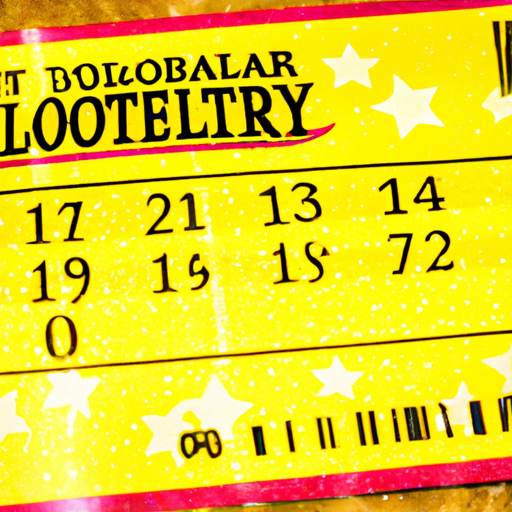Congratulations on winning the lottery! Now that you’re basking in the excitement of your newfound wealth, it’s natural to wonder whether you’ll have to share a portion of your winnings with the taxman. Well, let’s put your mind at ease. In this article, we’ll explore the question that’s been on everyone’s mind: are lottery winnings taxable? We’ll provide you with a clear and concise answer so you can continue enjoying your windfall with peace of mind. So get ready to learn all about the tax implications of your lottery fortune!
Are Lottery Winnings Taxable?
Congratulations! You’ve just won the lottery, and your life is about to change in a big way. But before you get carried away with visions of endless luxury and extravagance, it’s important to understand the taxation implications of your newfound wealth. In this article, we’ll explore whether lottery winnings are taxable, and what you need to know about federal and state income tax, lump sum and annuity payments, tax withholding, reporting to the IRS, the impact of other prizes and deductions, taxation in other countries, and some valuable tax planning tips for lottery winners. It’s always a good idea to consult a tax professional to ensure you make the most of your windfall while staying compliant with the law.
Federal Income Tax on Lottery Winnings
When it comes to lottery winnings, the answer is generally yes – they are taxable at the federal level. The Internal Revenue Service (IRS) considers lottery winnings as income, just like any other form of earnings. This means that if you win the lottery, you are required to report your winnings as part of your federal income tax return.
The federal tax rate on lottery winnings varies depending on the amount you win, as well as your overall taxable income for the year. The highest federal tax rate is currently 37%, but it only applies to individuals with very high incomes. For most lottery winners, the tax rate will be lower, but it’s essential to understand that a significant portion of your winnings may still be subject to federal income tax.
State Income Tax on Lottery Winnings
In addition to federal taxes, many states also impose their own income tax on lottery winnings. The specific tax rate and rules vary from state to state, so it’s important to familiarize yourself with the regulations in your state. Some states, such as California and Delaware, do not tax lottery winnings, while others, like New York and Rhode Island, have high state tax rates.
If you’re lucky enough to win the lottery and live in a state with an income tax, you’ll typically be required to report your winnings on your state income tax return. Be prepared for the possibility of a significant portion of your winnings being subject to state taxes, which can range from a few percent to double-digit rates.
Taxation of Lump Sum Payments
Lottery winners often have the option to receive their winnings in either a lump sum or as annuity payments over several years. If you choose the lump sum option, the entire amount of your winnings will be paid out to you upfront. While this may seem like the most appealing choice for immediate access to all your winnings, it’s important to consider the tax implications.
When you receive a lump sum payment, you will be required to pay federal and state taxes on the entire amount in the year you receive it. This means that if you win a substantial sum and choose the lump sum option, you could find yourself facing a significant tax bill in that same year. It’s crucial to plan ahead and understand the potential tax consequences before opting for a lump sum payout.
Taxation of Annuity Payments
Alternatively, you may choose to receive your lottery winnings as annuity payments spread out over a specified period, typically 20 or 30 years. With this option, you’ll receive regular payments that can help ensure a steady stream of income throughout the years.
For tax purposes, when you receive annuity payments, you’ll only be required to pay taxes on the portion of each payment that represents interest earned on your winnings. The principal amount of your winnings is not subject to tax, as it has already been taxed when you initially won the lottery. This can be beneficial as it allows you to spread out your tax liability over the duration of your annuity payments.
Tax Withholding on Lottery Winnings
When you win the lottery, the entity responsible for administering the lottery, such as the state lottery commission or a third-party organization, may be required to withhold a portion of your winnings for tax purposes. This withholding is done to ensure that you pay your taxes on the winnings.
The amount withheld will typically depend on the size of your winnings and the tax rate applicable to them. While the withheld amount will go towards your tax liability, it’s essential to understand that it may not cover the full amount of tax due. You may still be responsible for paying additional taxes when you file your federal and state income tax returns. Therefore, it’s crucial to set aside funds to cover potential tax liabilities after considering any withholding.
Reporting Lottery Winnings to the IRS
As mentioned earlier, if you win the lottery, you are required to report your winnings to the IRS when you file your federal income tax return. This includes all winnings, regardless of the amount. Even if you win a relatively small sum, it’s essential to report it accurately to avoid any potential legal consequences.
Lottery winnings are typically reported on Form W-2G, which is issued by the entity that paid you the winnings. The form will outline the amount of your winnings and any tax withheld. Make sure to keep a copy of this form for your records and provide the necessary information when filling out your tax return.
Effect of Other Prizes and Deductions on Taxation
While the focus of this article has primarily been on lottery winnings, it’s worth noting that taxation may also apply to other types of gambling and prize winnings. Whether you win a large amount at a casino, receive a substantial prize from a game show, or benefit from any other type of gambling winnings, they are generally subject to federal and state taxes.
Additionally, it’s important to consider that certain deductions and expenses may be eligible to offset your taxable lottery winnings. For example, if you choose to donate a portion of your winnings to charity, you may be able to deduct that amount from your total income. It’s advisable to consult a tax professional to explore the deductibility of expenses and potential strategies for reducing your tax liability.
Taxation of Lottery Winnings in Other Countries
Taxation rules for lottery winnings vary around the world, with each country having its own set of regulations. Some countries tax lottery winnings similarly to the United States, while others may not impose any tax on them at all. If you plan to play international lotteries or are a non-U.S. resident who wins a lottery in the United States, it’s crucial to research and understand the applicable taxation laws in your specific country or jurisdiction.
Tax Planning Tips for Lottery Winners
Given the potentially significant tax implications of winning the lottery, it’s crucial to engage in careful tax planning to maximize the benefits of your newfound wealth. Here are a few tips to consider:
-
Consult a Tax Professional: A tax professional can provide personalized guidance based on your specific circumstances, ensuring you make informed decisions that optimize your tax strategies.
-
Consider the Tax Implications of Payout Options: Evaluate the tax consequences of lump sum payments versus annuity payments to determine which option is most advantageous for your financial goals and tax situation.
-
Set Aside Funds for Taxes: Due to potential tax withholding limitations, it’s wise to set aside a portion of your winnings to cover any additional tax liabilities that may arise.
-
Understand State Tax Rates: Familiarize yourself with the tax rates and regulations in your state, as they can significantly impact the amount of your winnings subject to taxation.
-
Explore Tax Deductions and Credits: Work with a tax professional to identify potential deductions and credits that may reduce your tax liability, such as charitable donations or business expenses related to your winnings.
-
Stay Compliant with Reporting: Accurately report your winnings to the IRS and submit any necessary forms, such as Form W-2G, to avoid any potential legal issues.
Consulting a Tax Professional
Winning the lottery is an incredible stroke of luck, but it also brings a host of financial considerations, including taxation. To fully understand your tax obligations, maximize your wealth, and ensure compliance with the law, it’s highly recommended to consult a tax professional. A qualified tax advisor can provide personalized guidance based on your unique situation, helping you navigate the complexities of tax planning and optimize your financial outcomes. So, congratulations again on your lottery winnings, and remember to seek expert advice to make the most of your newfound fortune!






